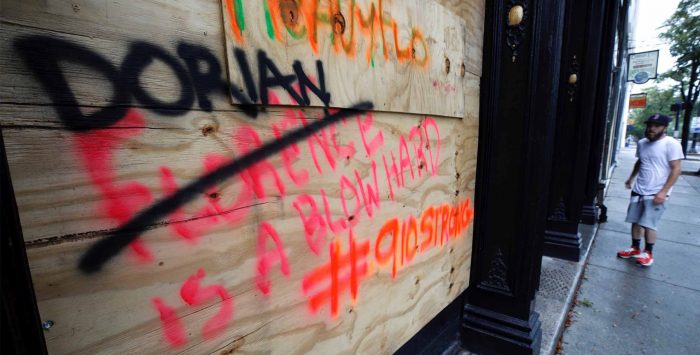Welcome to Medicare Heads Up, a regular feature intended to deliver state and national Medicare-related headlines that will keep consumers abreast of developments that affect their coverage and costs. This week:
Medicare open enrollment extended due to severe weather
Medicare enrollees in certain parts of six states and Puerto Rico are eligible for a special enrollment period (SEP) from CMS, due to severe weather events that impeded Medicare open enrollment by impacting the technology and outreach used during the OEP (which ended December 7). The SEP applies to people who live in areas in which FEMA declared an emergency or major disaster – or people who relied on the assistance of other people who live in the affected areas. The SEP extends open enrollment until December 31, – or January 31 – depending on the affected location. Some enrollees in the following locations are eligible for Medicare SEPs:
SEP ending December 31, 2019
- South Carolina
- Georgia
- Florida
- Florida Seminole Tribe
- Puerto Rico
SEP ending January 31, 2020
- South Dakota
- Texas
- North Carolina
In each of those states, the extended deadline only applies in affected counties.
If you think you may be eligible for a special enrollment period due to a FEMA declared major weather related disaster, call 1-800-MEDICARE anytime, 24 hours a day, 7 days a week to confirm your eligibility, and request enrollment under this special enrollment opportunity.
Justice Department files suit against CVS for fraudulently billing Medicare
The U.S. Justice Department filed suit this week against pharmacy chain CVS Health Corp and its Omnicare unit, alleging Omnicare fraudulently billed Medicare for falsely prescribed medications, and illegally dispensed the drugs to tens of thousand of patients in residential facilities. The federal case claims Omnicare would illegally “rollover’ already filled prescriptions and dispense them to seniors and disabled individuals without provider supervision or authorization. CVS denies the claims and will contest the accusations in court.
New year marks switch to Medicare cards with MBIs
Beginning January 1, 2020, Medicare beneficiaries will no longer be able to use Social Security number-based identification cards or claim numbers, and will use cards with Medicare Beneficiary Identifiers (MBIs). This marks an end of a 21-month transition period to the anonymous, randomly generated MBIs, which aim to minimize the possibility of identify theft and fraud for Medicare enrollees. Every Medicare beneficiary has already been assigned a MBI – an 11-character identifier made up of numbers and uppercase letters – which can be found on the new Medicare cards. The MBIs will be required for enrollees to submit claims, change plans, and for hospital admissions. For enrollees who currently have their premiums deducted from Social Security, the transfer over to MBIs will not impact that payment, or any existing Medicare, Medicare Advantage or Part D coverage.
Miami tops metro areas with highest percentage of Medicare Advantage enrollees
Miami leads a list of the top six metro areas with the highest percentage of Medicare beneficiaries selecting Medicare Advantage (as opposed to Original Medicare), at 53.8 percent – far outpacing the national average of 37 percent market penetration. The next top five metros in percentage of Medicare Advantage enrollees are:
- Los Angeles/Orange County – 48.2%
- Dallas/Fort Worth – 36%
- New York City/Newark – 32.8%
- Philadelphia/Camden – 30%
- Chicago – 25.6%
In the Chicago metro area, traditional Medicare maintains a strong percentage of enrollees at 67.8% – the highest among the major U.S. metro areas – due in part to the popularity of Medicare supplement plans in Illinois.
Medigap plans popularity reflected by enrollment growth
Net premiums earned by Medicare supplement – or Medigap – insurers have risen 55% since 2011, reaching $30 billion in annual premiums, according to a new report. Increased enrollment in the supplement plans – up 45% since 2011 – is attributed to an aging population and the resulting increase in the number of Americans eligible for Medicare. A recent report from America’s Health Insurance Plans (AHIP) also reflects the continued growth in Medigap enrollment nationally, with an estimated 13.5 million Americans covered by the plans in 2017.
Jesse Migneault is a journalist and editor who has written about business, government and healthcare – including public and private-payer health insurance. His articles have appeared in HealthPayerIntelligence, the Hartford Courant, Portsmouth Herald, Seacoastonline.com, Foster’s Daily Democrat, and York County Coast Star.
In addition, his work has been cited by health industry stakeholders such as the Eugene S. Farley Health Policy Center, Association of Healthcare Journalists, American Academy of Actuaries, Kaiser Permanente, blueEHR, San Diego Law Review, Medicare Agent News, healthjournalism.org, and Concierge Medicine among others.
Tags: Medicare Advantage, Medicare fraud, Medicare Heads Up, Medicare open enrollment, Medicare supplement

